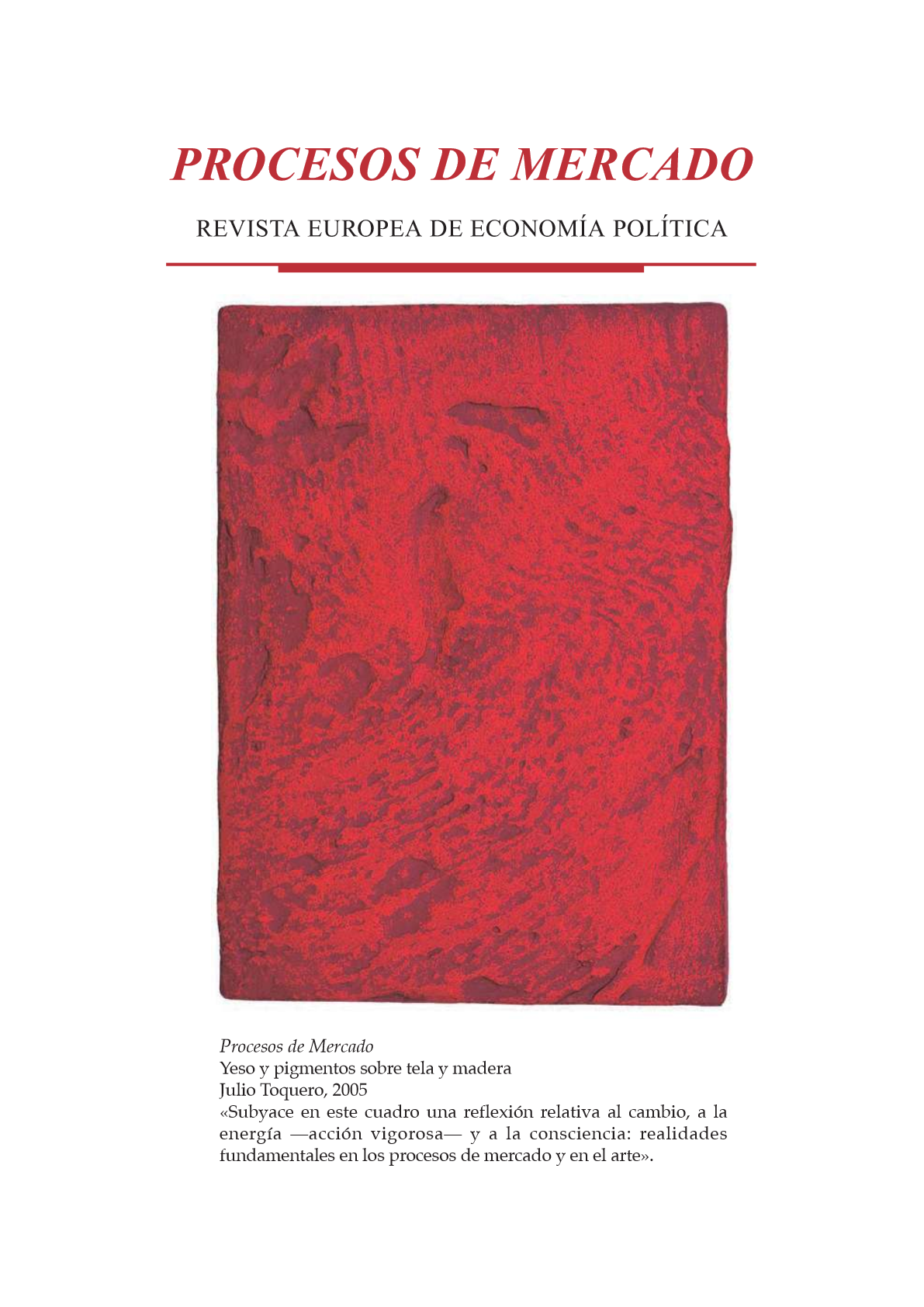IN DEFENSE OF MISES’S THREEFOLD DIVISION OF ECONOMIC GOODS
DOI:
https://doi.org/10.52195/pm.v21i1.927Abstract
Mises divides economic goods into three categories: consumers’ goods, capital good, and medium of exchange (money). Barnett & Block (2005) argue that exchange is a form of production, and there are only two types of goods, consumers’ goods and capital goods, and consequently, money is a capital goods. Howden (2016) argues for adding a fourth category of economic goods: non-monetary financial assets. The purpose of this paper is to defend Mises’s trichotomy and to clarify that the treatment of the taxonomy of economic goods must always be subjected to the test of the objectives and scope of catallactics or price theory.
Downloads
References
Anderson, B.M. (2007 [1917]). The Value of Money. Reprint, Auburn: Ludwig von Mises Institute.
Barnett, W., Block, W. (2005). “Money: Capital Good, Consumers’ Good, or (Media of) Exchange Good?”. The Review of Austrian Economics, 18: 179-194. DOI: https://doi.org/10.1007/s11138-005-6826-1
Barnett, W., Block, W. (2016). “Gross (domestic) output–Another government con”. Procesos de Mercado, 13(2), 13-39. DOI: https://doi.org/10.52195/pm.v13i2.111
Barnett, W., Saliba, M. (2002). “Neoclassical Theory and the Incon- sistent Application of Subjectivism”. Proceedings of the Eighth Annual Austrian Scholars’ Conference.
Block, W., Barnett, W. (2006). “Some Thoughts on Price Defla- tion”. New Perspectives on Political Economy, 2(1):1-12. DOI: https://doi.org/10.62374/rft0r721
Böhm-Bawerk, E. V. (1959). The Positive Theory of Capital. Auburn: Ludwig von Mises Institute.
Böhm-Bawerk, E. V. (1962). Whether Legal Rights and Relationships are Economic Goods. Libertarian Press, Grove City, Penn.
Fetter, F. A. (1922). Economic principles. Auburn: Ludwig von Mises Institute.
Friedman, M. (1969). “The optimum quantity of money”. In The optimum quantity of money, and other essays, Aldine Publishing, Chicago, IL, pp. 1-50 (Cited in Barnett and Block(2005)).
Garrison, R. W. (2011[1988]). “Professor Rothbard and the Theory of Interest”. In J. Herbener (Ed.), The Pure Time-Preference Theory of Interest, pp. 159-172, Auburn: Ludwig von Mises Institute.
Hansen, K. (2019). “The Menger-Mises Theory of the Origin of Money–Conjecture or Economic Law?”. Quarterly Journal of Aus- trian Economics, 22, no. 1: 26-48. DOI: https://doi.org/10.35297/qjae.010017
Hayek, F. A. (1943). “The facts of the social sciences”. Ethics, 54(1), 1-13. DOI: https://doi.org/10.1086/290368
Howden, D. (2016). “A Refinement to the Typology of “Goods””. Jour- nal of Prices & Markets, No. 2 (2016): 4-11.
Hutt, W. (2008 [1956]). “The yield from money held”. In M. Senn- holz (Ed.), On freedom and free enterprise: essays in honor of Ludvig von Mises, pp. 196-216, Auburn: Ludwig von Mises Institute.
Helfferich, K. (1924 [1923]). Das Geld [Money] (6th ed.), Leipzig, Lon- don (Cited in Mises (1953:80)).
Hoppe, H. H., Hülsmann, J. G., Block, W. (1998). “Against fiduciary media”. Quarterly Journal of Austrian Economics 1, no. 1: 43-44. DOI: https://doi.org/10.1007/s12113-998-1001-8
Hoppe, H. H. (2009). “The Yield from Money Held” Reconsid- ered. New Perspectives on Political Economy 5, no. 2. DOI: https://doi.org/10.62374/2trwxg69
Hülsmann, J. G. (2017). “The myth of the risk premium”. Document de Travail Du GRANEM, No. 2017-01, 56. DOI: https://doi.org/10.4324/9781315617336-6
Knies, K. (1885). Geld und Kredit. Weidmann, Bd. I. Berlin, (Cited in Mises (1953:79)).
Machaj, M. (2012). “Mises and Value Theory”, In J. G. Hülsmann (Ed.), Theory of money and fiduciary media: Essays in Celebration of the Centennial, pp.75-93, Auburn: Ludwig von Mises Institute.
Mises, L. V. (1998 [1949]). Human Action: A Treatise on Economics.
Scholar’s Edition. Auburn: Ludwig von Mises Institute.
Mises, L. V. (1953). The theory of money and credit. Yale University Press, New Haven.
Rothbard, M. N. (2009 [1962]). Man, Economy, and State, with Power and Market. 2d ed. Auburn: Ludwig von Mises Institute.
Salerno, J. T. (1999). “The place of Mises’s human action in the development of modern economic thought”. Quarterly Journal of Austrian Economics, 2(1): 35-65. DOI: https://doi.org/10.1007/s12113-999-1025-8
Salerno, J. T. (2010). Money, sound and unsound. Auburn: Ludwig von Mises Institute.


